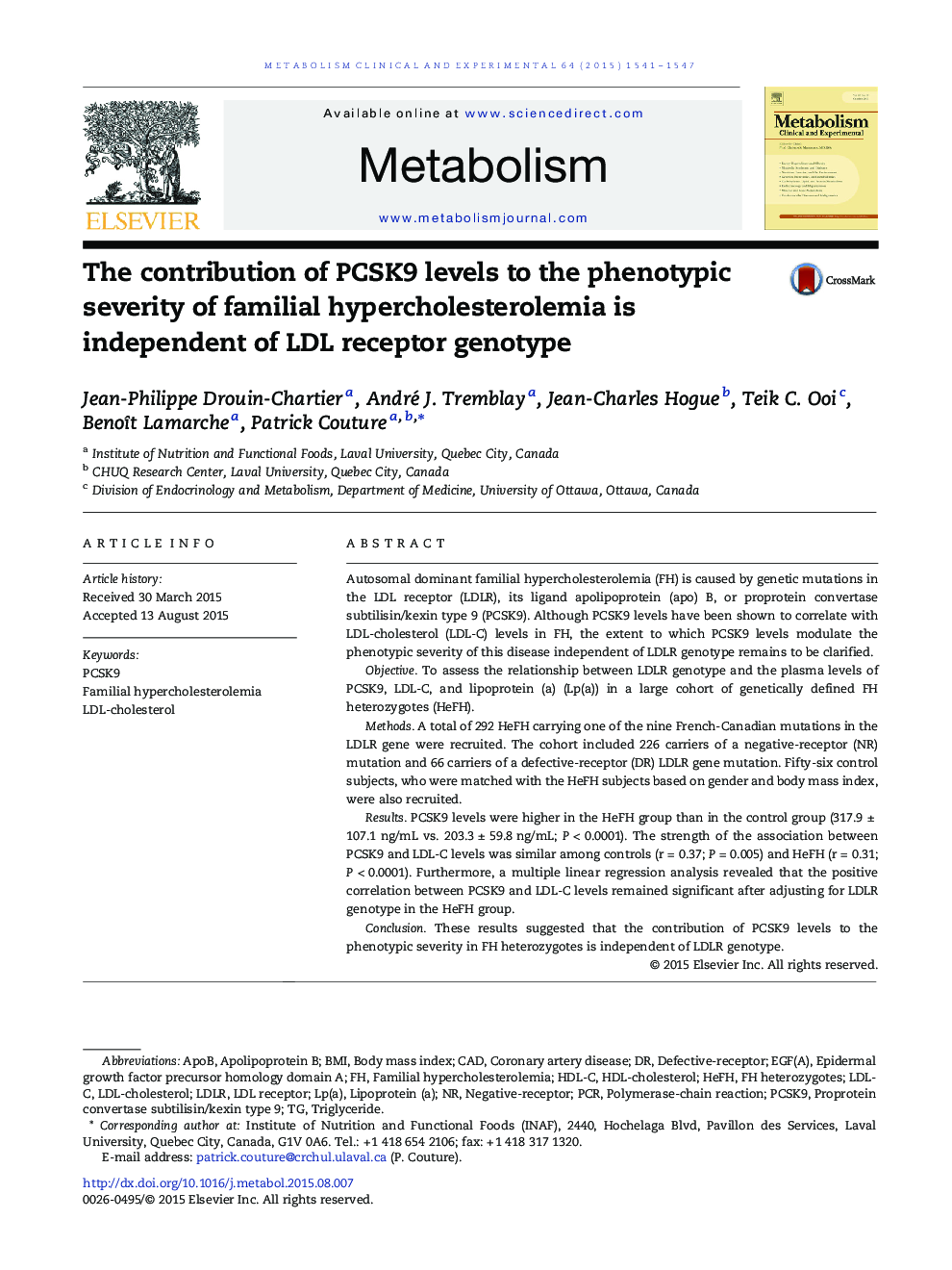| Article ID | Journal | Published Year | Pages | File Type |
|---|---|---|---|---|
| 2805380 | Metabolism | 2015 | 7 Pages |
Autosomal dominant familial hypercholesterolemia (FH) is caused by genetic mutations in the LDL receptor (LDLR), its ligand apolipoprotein (apo) B, or proprotein convertase subtilisin/kexin type 9 (PCSK9). Although PCSK9 levels have been shown to correlate with LDL-cholesterol (LDL-C) levels in FH, the extent to which PCSK9 levels modulate the phenotypic severity of this disease independent of LDLR genotype remains to be clarified.ObjectiveTo assess the relationship between LDLR genotype and the plasma levels of PCSK9, LDL-C, and lipoprotein (a) (Lp(a)) in a large cohort of genetically defined FH heterozygotes (HeFH).MethodsA total of 292 HeFH carrying one of the nine French-Canadian mutations in the LDLR gene were recruited. The cohort included 226 carriers of a negative-receptor (NR) mutation and 66 carriers of a defective-receptor (DR) LDLR gene mutation. Fifty-six control subjects, who were matched with the HeFH subjects based on gender and body mass index, were also recruited.ResultsPCSK9 levels were higher in the HeFH group than in the control group (317.9 ± 107.1 ng/mL vs. 203.3 ± 59.8 ng/mL; P < 0.0001). The strength of the association between PCSK9 and LDL-C levels was similar among controls (r = 0.37; P = 0.005) and HeFH (r = 0.31; P < 0.0001). Furthermore, a multiple linear regression analysis revealed that the positive correlation between PCSK9 and LDL-C levels remained significant after adjusting for LDLR genotype in the HeFH group.ConclusionThese results suggested that the contribution of PCSK9 levels to the phenotypic severity in FH heterozygotes is independent of LDLR genotype.
